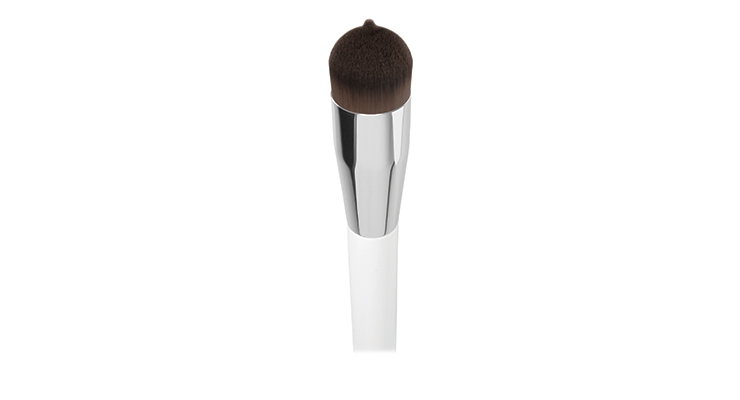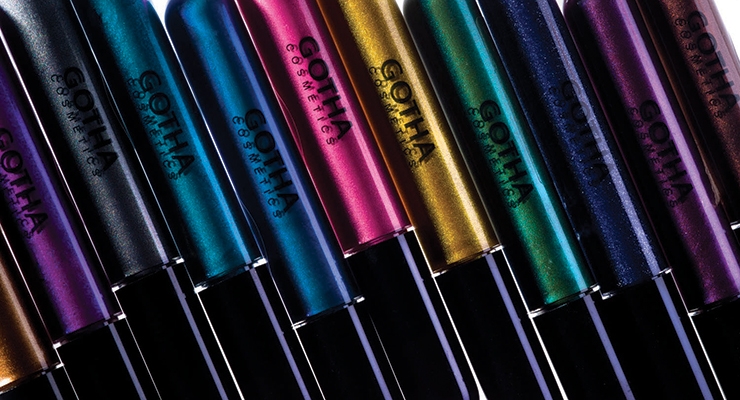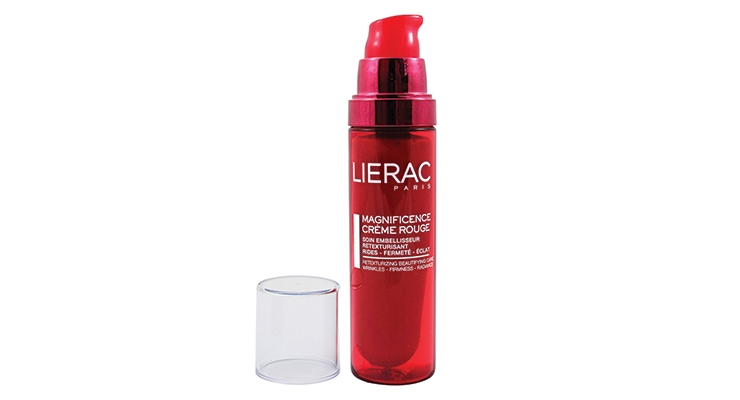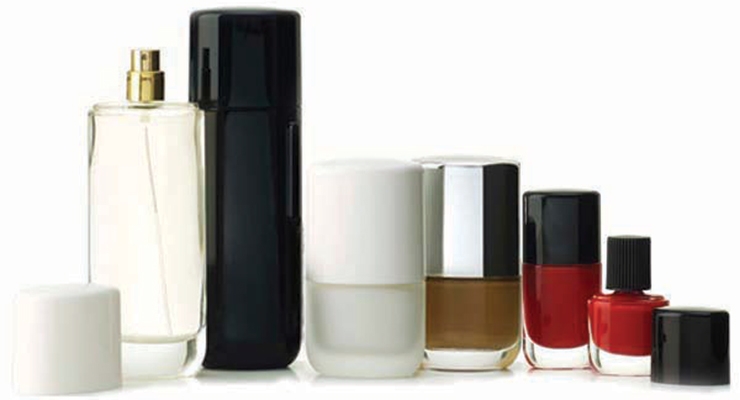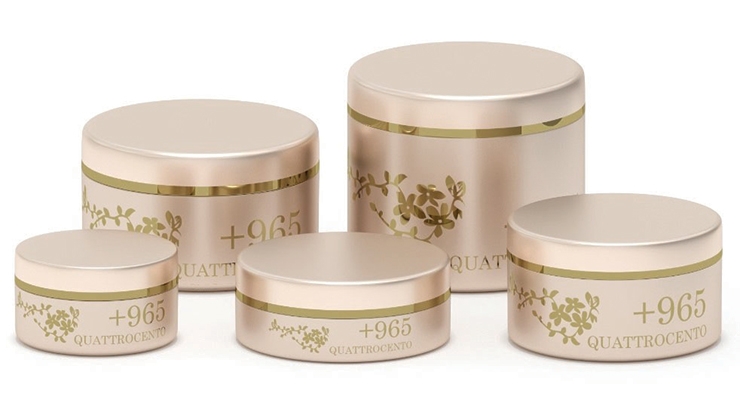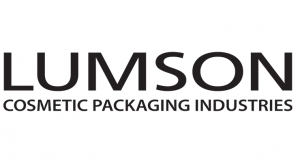Joanna Cosgrove, Contributing Editor02.01.16
With a rich, cultural history in design aesthetics, Italy is a global trendsetter for cosmetic, personal care and fragrance innovation.
According to the Italian Trade Commission, more than 60% of the world’s cosmetics are made in Italy. The U.S. imported almost $7 billion of Italian beauty products in 2014, making Italy the fourth largest supplier to the U.S. market. Italian packaging companies also continue to do an excellent job of translating the luxe of fashion into the design of their packaging elements as well.
“Attributes making Italian beauty products unique in the world are quite like those tied to design and fashion,” says Federica Bonaldi, marketing manager, Lumson Cosmetic Packaging, Capergnanica, Italy. “The Milan Fashion shows are world famous, establishing themselves as a trendsetter also for the Beauty sector. What’s more, Italian beauty products are enjoying the favorable and affordable price, after the ‘Euro value’ decrease: Top quality with reasonable prices is becoming another strategic asset to be considered.”
Chiara Pani, director of marketing, Gotha Cosmetics, Bergamo, Italy, summarizes Italian packaging prowess in three words: technology, creativity and quality. “The reason for this success is probably linked to what made Italian fashion so popular and famous,” she says, pointing to the Italian creativity and craftsmanship of artisanal glassmaking, fashion-forward componentry and sculptural package design.
These unique attributes, she continues, give rise to high-quality products that differentiate themselves as sophisticated and unique but also recognizable. “Italian beauty, just like fashion, flaunts an image of elegance and originality that are typical of Made in Italy and that are a source of pride and prestige in foreign markets,” she says.
Pani’s Gotha counterpart, Denise Provesi, says Italian beauty products and packaging are distinguishable by the “expertise and deepest attention to details”—hallmarks that can be traced all the way back to the Renaissance.
Artisanally Italian
Sara Zanafredi, CEO of Pennelli Faro Srl of Casalmaggiore, Italy, feels the Italian approach to beauty packaging design imbues elements of inspiration, perfection and uniqueness. “[We are] inspired and made curious by every idea and excitement around us, [about the] possibility and capacity to turn this inspiration into true skill, by finding the best raw materials, the best production process, artisanal attention and care to the finest and smallest detail in order to create a real masterpiece in every product or tool we manufacture,” she says.
Zanafredi says that there are many trends influencing the beauty, cosmetic and personal care products produced in Italy. “Above all…everybody is looking for a high quality level in the application, materials and processes, [as well as] constant research together with artisanal care of details,” she says, adding that this approach preserves the tradition of quality.
Pennelli Faro, a leading manufacturer of makeup brushes, takes an artisanal approach to producing its products. The company’s latest innovation, the Tip & Blend foundation brush, was developed after an in-depth study of foundation application. The brush has a rounded shape with a central tip in relief, and dermatologically tested synthetic bristles. “Thanks to its special shape, you can pour a small amount of liquid or cream foundation straight from the spout onto the tip, without first pouring it onto the back of your hand to avoid product waste and bacterial contamination,” Zanafredi says. “The tip allows you to dot your face with foundation only in the desired areas and also in very limited areas, thus enabling you to create light and shade according to various contouring techniques. The dome portion of the brush serves to spread the product with circular movements, performing a massage on the face that allows the color to be deposited on the skin, merging without leaving any streaks.”
“We manufacture each brush with craftsmanship: highest quality materials, attention to detail, natural sense of beauty and true passion for what we do,” Zanafredi says. “Innovation is very important for us.”
Showcasing the advantages of aesthetically pleasing airless packaging is a top-of-mind objective for Lumson Cosmetic Packaging. The company was awarded the Prix Formes de Luxe 2015 for the Standard Packaging category at this year’s Luxe Pack Monaco for the airless package it produced for Laboratoires Lierac’s Magnificence Red Cream. The product’s delicate formula includes sensitive ingredients targeted to reduce wrinkles and fine lines; firm, plump and smooth skin texture, and instantly enhance skin tone—and required airless packaging to help achieve all of those goals. “Lumson’s APP Airless Plastic Packaging eliminates outdoor air contamination, leading to a considerable opportunity to reduce preservatives in the final formula,” explains Bonaldi. “Tamper-Proof Airless Systems like APP Envers 653 give your product maximum protection against contamination from external sources. Furthermore, APP helps to preserve sensitive cosmetic components from deterioration and guarantees a dispense rate of more than 95%.”
Lierac chose the color red, both for the transparent mass coloring of the bottle and for the Airless AA355 Pump, which also featured a metallized collar and Smile 223 actuator. “The only transparent element is the overcap AA355, through which it’s possible to glimpse the metallized effects of the pump,” Bonaldi says. “The shiny effect of the UV screen printing in white color makes a contrast with the red color of the entire packaging. It’s an ergonomic pack, with an easy dispensing system, guaranteeing a professional result.”
In addition to its work with airless packaging solutions, Lumson extended its functional focus to the study of lipgloss application in the development of four new lipgloss applicators meant to be paired with its “Made by Lumson” lipgloss packaging range. The applicators deliver a precise application of any lipgloss formulation with an innovative shape. The company also echoed a similar play of shape (but on a larger scale) during the development of its “Prestige Caps with Contour Applicator.” The product’s ergonomic shape guarantees a perfect application once matched with its Contour Applicator. “The Contour is meant to be used for facial products, such as foundations, concealers and primers,” says Bonaldi. “The name recalls the ‘contouring’ technique, one of the latest trends as far as makeup is concerned, favored by the use of a large applicator.”
Intersecting Design & Functionality
According to Jim Slowey, vice president of marketing and sales for the Jamaica, NY, subsidiary of Milan-based Baralan International S.p.A., Italian creativity and design, while based on centuries of history and beauty, is also one of function.
“Designing and manufacturing the most beautiful yet functional ways to present cosmetics is why Italy remains a center for many of the world’s up-and-coming and established packaging and ingredient suppliers,” he says. “There remains an inspiration to create for the people.”
Baralan provides the industry with components that are both beautiful and functional. The company’s ULLI Line is a complete family of bottles and accessories ranging from 8- to 100ml, with neck finishes to accommodate both fragrance and skin care. With caps, brushes, droppers, pumps and over caps all at the ready, brands can launch a marquis product without having to wait on the packaging for line extensions. “Creating new conveniences and maintaining the quality and beauty truly represents the Italian spirit,” he says.
Balancing outside-the-box design vision with everyday practicality is another Italian beauty hallmark. Gotha’s Pani says the increasing sophistication of the beauty market is evolving with the growing consumer shift toward products that fulfill both varied and specific needs. For Gotha, this has translated into a focus on developing products that incorporate elements of multifunctionality and customization.
“Multifunctionality means of course multi-tasking products (i.e, 2- or 3-in-1) to save money but especially time, as they respond to the real needs of today’s women,” she says. “In addition, but always following the same trend, more and more consumers expect specific actions from products that were initially born with different purposes, such as anti-aging action from a foundation or eyeshadow.”
The concepts of multifunctionality and customization, she says, also apply to packaging. “Today, when launching a new product, packaging is a crucial factor; it will contribute to the success of a brand, affecting not only the product efficacy, integrity, and functionality, but also whether the product will stand out on the shelf and make a positive and lasting impression on customers,” she says. “Nowadays, a successful product should provide portability and convenience. Women are looking for this and brands are launching new products with smart, handy packaging (think of Estée Lauder which has relaunched Double Wear Makeup with a new formula, but especially a package to take everywhere).”
Elegant Execution
Italian-made packaging elements typically benefit from a traditionally held concept of delivering beauty with artful craftsmanship. “The evolution from handmade glassmaking to that of semi-automatic and automatic productions, the latter only a few decades old, never lost this objective of delivering high quality, beautiful products,” says Olga Bursac, vice president of sales and marketing for Parma, Italy-headquartered Bormioli Luigi SpA, which also has U.S. offices in Plainview, NY. “Glassmaking is still the world of artisans where the pride in their craftsmanship has always been first and foremost, even if, today, glass bottles we produce are automatic, but, where intimate skill and knowledge of the product is still manmade.”
In addition to producing high-end tableware and spirits bottles, Bormioli Luigi’s glassmaking expertise is synonymous with high-end, luxury fragrance houses. “The Italian ‘brand,’ in general, connotes the idea of luxury and quality and our own reputation as a premier glassmaker certainly adds to our ability to keep expanding our foothold into prestige fragrance bottle glassmaking for our end customer,” says Bursac.
While the majority of glass cosmetic packaging Bormioli Luigi produces is for custom jars and skin care items, the company also offers a wide gamut of stock glass packaging in fragrance, and, lately, more options in the area of skin and cosmetic items. The company is also broadening its portfolio of innovative secondary process techniques for glass packaging, which most notably includes a patented inside coating technique in ceramic opaque and translucent colors.
On the plastic side, MC&CO Srl of Pescara, Italy offers elegant and innovative custom and standard plastic packaging designs with personalized decoration to the cosmetic, skin care and hair care industries. Part of MC&CO’s philosophy is attention to detail. “Our most recent project was for Jean Paul Myne’s ‘Navitas’ and ‘Thermo Repair,’ in which we were able to use different bottles and jars from our standard lines and made them look distinctive and luxurious with a beautiful hot stamp decoration,” recalls Maurizio Colangelo, MC&CO’s CEO.
The hair care range, which was executed this year, spanned five “Navitas” components and three “Thermo Repair” packages, ranging from 75ml all the way up to 500ml. The line is characterized by understatedly elegant deco and color schemes that epitomize a quote from one of Italy’s most famous design innovators, Leonardo Da Vinci, “La semplicità è l’ultima sofisticazione,” or “Simplicity is the ultimate sophistication.”
Curt Altmann, director of marketing for New York-based Yonwoo/PKG, aptly encapsulated the Italian influence on beauty and fragrance packaging, linking its reputation as a centuries-old mecca for fashion and design to the heightened attention to and balance of form, function and emotion in any consumer product they make. “It is a balance that seems ingrained into the culture,” Altmann says. “There seems to be attention paid to the way a formula works with a package, and the way a package communicates an emotion makes for a great consumer experience. As a result, packaging suppliers in Italy have built a reputation for design engineering quality that is one of the standards for the world and hence, craftsmanship is paramount.”
According to the Italian Trade Commission, more than 60% of the world’s cosmetics are made in Italy. The U.S. imported almost $7 billion of Italian beauty products in 2014, making Italy the fourth largest supplier to the U.S. market. Italian packaging companies also continue to do an excellent job of translating the luxe of fashion into the design of their packaging elements as well.
“Attributes making Italian beauty products unique in the world are quite like those tied to design and fashion,” says Federica Bonaldi, marketing manager, Lumson Cosmetic Packaging, Capergnanica, Italy. “The Milan Fashion shows are world famous, establishing themselves as a trendsetter also for the Beauty sector. What’s more, Italian beauty products are enjoying the favorable and affordable price, after the ‘Euro value’ decrease: Top quality with reasonable prices is becoming another strategic asset to be considered.”
Chiara Pani, director of marketing, Gotha Cosmetics, Bergamo, Italy, summarizes Italian packaging prowess in three words: technology, creativity and quality. “The reason for this success is probably linked to what made Italian fashion so popular and famous,” she says, pointing to the Italian creativity and craftsmanship of artisanal glassmaking, fashion-forward componentry and sculptural package design.
These unique attributes, she continues, give rise to high-quality products that differentiate themselves as sophisticated and unique but also recognizable. “Italian beauty, just like fashion, flaunts an image of elegance and originality that are typical of Made in Italy and that are a source of pride and prestige in foreign markets,” she says.
Pani’s Gotha counterpart, Denise Provesi, says Italian beauty products and packaging are distinguishable by the “expertise and deepest attention to details”—hallmarks that can be traced all the way back to the Renaissance.
Artisanally Italian
Sara Zanafredi, CEO of Pennelli Faro Srl of Casalmaggiore, Italy, feels the Italian approach to beauty packaging design imbues elements of inspiration, perfection and uniqueness. “[We are] inspired and made curious by every idea and excitement around us, [about the] possibility and capacity to turn this inspiration into true skill, by finding the best raw materials, the best production process, artisanal attention and care to the finest and smallest detail in order to create a real masterpiece in every product or tool we manufacture,” she says.
Zanafredi says that there are many trends influencing the beauty, cosmetic and personal care products produced in Italy. “Above all…everybody is looking for a high quality level in the application, materials and processes, [as well as] constant research together with artisanal care of details,” she says, adding that this approach preserves the tradition of quality.
Pennelli Faro, a leading manufacturer of makeup brushes, takes an artisanal approach to producing its products. The company’s latest innovation, the Tip & Blend foundation brush, was developed after an in-depth study of foundation application. The brush has a rounded shape with a central tip in relief, and dermatologically tested synthetic bristles. “Thanks to its special shape, you can pour a small amount of liquid or cream foundation straight from the spout onto the tip, without first pouring it onto the back of your hand to avoid product waste and bacterial contamination,” Zanafredi says. “The tip allows you to dot your face with foundation only in the desired areas and also in very limited areas, thus enabling you to create light and shade according to various contouring techniques. The dome portion of the brush serves to spread the product with circular movements, performing a massage on the face that allows the color to be deposited on the skin, merging without leaving any streaks.”
“We manufacture each brush with craftsmanship: highest quality materials, attention to detail, natural sense of beauty and true passion for what we do,” Zanafredi says. “Innovation is very important for us.”
Showcasing the advantages of aesthetically pleasing airless packaging is a top-of-mind objective for Lumson Cosmetic Packaging. The company was awarded the Prix Formes de Luxe 2015 for the Standard Packaging category at this year’s Luxe Pack Monaco for the airless package it produced for Laboratoires Lierac’s Magnificence Red Cream. The product’s delicate formula includes sensitive ingredients targeted to reduce wrinkles and fine lines; firm, plump and smooth skin texture, and instantly enhance skin tone—and required airless packaging to help achieve all of those goals. “Lumson’s APP Airless Plastic Packaging eliminates outdoor air contamination, leading to a considerable opportunity to reduce preservatives in the final formula,” explains Bonaldi. “Tamper-Proof Airless Systems like APP Envers 653 give your product maximum protection against contamination from external sources. Furthermore, APP helps to preserve sensitive cosmetic components from deterioration and guarantees a dispense rate of more than 95%.”
Lierac chose the color red, both for the transparent mass coloring of the bottle and for the Airless AA355 Pump, which also featured a metallized collar and Smile 223 actuator. “The only transparent element is the overcap AA355, through which it’s possible to glimpse the metallized effects of the pump,” Bonaldi says. “The shiny effect of the UV screen printing in white color makes a contrast with the red color of the entire packaging. It’s an ergonomic pack, with an easy dispensing system, guaranteeing a professional result.”
In addition to its work with airless packaging solutions, Lumson extended its functional focus to the study of lipgloss application in the development of four new lipgloss applicators meant to be paired with its “Made by Lumson” lipgloss packaging range. The applicators deliver a precise application of any lipgloss formulation with an innovative shape. The company also echoed a similar play of shape (but on a larger scale) during the development of its “Prestige Caps with Contour Applicator.” The product’s ergonomic shape guarantees a perfect application once matched with its Contour Applicator. “The Contour is meant to be used for facial products, such as foundations, concealers and primers,” says Bonaldi. “The name recalls the ‘contouring’ technique, one of the latest trends as far as makeup is concerned, favored by the use of a large applicator.”
Intersecting Design & Functionality
According to Jim Slowey, vice president of marketing and sales for the Jamaica, NY, subsidiary of Milan-based Baralan International S.p.A., Italian creativity and design, while based on centuries of history and beauty, is also one of function.
“Designing and manufacturing the most beautiful yet functional ways to present cosmetics is why Italy remains a center for many of the world’s up-and-coming and established packaging and ingredient suppliers,” he says. “There remains an inspiration to create for the people.”
Baralan provides the industry with components that are both beautiful and functional. The company’s ULLI Line is a complete family of bottles and accessories ranging from 8- to 100ml, with neck finishes to accommodate both fragrance and skin care. With caps, brushes, droppers, pumps and over caps all at the ready, brands can launch a marquis product without having to wait on the packaging for line extensions. “Creating new conveniences and maintaining the quality and beauty truly represents the Italian spirit,” he says.
Balancing outside-the-box design vision with everyday practicality is another Italian beauty hallmark. Gotha’s Pani says the increasing sophistication of the beauty market is evolving with the growing consumer shift toward products that fulfill both varied and specific needs. For Gotha, this has translated into a focus on developing products that incorporate elements of multifunctionality and customization.
“Multifunctionality means of course multi-tasking products (i.e, 2- or 3-in-1) to save money but especially time, as they respond to the real needs of today’s women,” she says. “In addition, but always following the same trend, more and more consumers expect specific actions from products that were initially born with different purposes, such as anti-aging action from a foundation or eyeshadow.”
The concepts of multifunctionality and customization, she says, also apply to packaging. “Today, when launching a new product, packaging is a crucial factor; it will contribute to the success of a brand, affecting not only the product efficacy, integrity, and functionality, but also whether the product will stand out on the shelf and make a positive and lasting impression on customers,” she says. “Nowadays, a successful product should provide portability and convenience. Women are looking for this and brands are launching new products with smart, handy packaging (think of Estée Lauder which has relaunched Double Wear Makeup with a new formula, but especially a package to take everywhere).”
Elegant Execution
Italian-made packaging elements typically benefit from a traditionally held concept of delivering beauty with artful craftsmanship. “The evolution from handmade glassmaking to that of semi-automatic and automatic productions, the latter only a few decades old, never lost this objective of delivering high quality, beautiful products,” says Olga Bursac, vice president of sales and marketing for Parma, Italy-headquartered Bormioli Luigi SpA, which also has U.S. offices in Plainview, NY. “Glassmaking is still the world of artisans where the pride in their craftsmanship has always been first and foremost, even if, today, glass bottles we produce are automatic, but, where intimate skill and knowledge of the product is still manmade.”
In addition to producing high-end tableware and spirits bottles, Bormioli Luigi’s glassmaking expertise is synonymous with high-end, luxury fragrance houses. “The Italian ‘brand,’ in general, connotes the idea of luxury and quality and our own reputation as a premier glassmaker certainly adds to our ability to keep expanding our foothold into prestige fragrance bottle glassmaking for our end customer,” says Bursac.
While the majority of glass cosmetic packaging Bormioli Luigi produces is for custom jars and skin care items, the company also offers a wide gamut of stock glass packaging in fragrance, and, lately, more options in the area of skin and cosmetic items. The company is also broadening its portfolio of innovative secondary process techniques for glass packaging, which most notably includes a patented inside coating technique in ceramic opaque and translucent colors.
On the plastic side, MC&CO Srl of Pescara, Italy offers elegant and innovative custom and standard plastic packaging designs with personalized decoration to the cosmetic, skin care and hair care industries. Part of MC&CO’s philosophy is attention to detail. “Our most recent project was for Jean Paul Myne’s ‘Navitas’ and ‘Thermo Repair,’ in which we were able to use different bottles and jars from our standard lines and made them look distinctive and luxurious with a beautiful hot stamp decoration,” recalls Maurizio Colangelo, MC&CO’s CEO.
The hair care range, which was executed this year, spanned five “Navitas” components and three “Thermo Repair” packages, ranging from 75ml all the way up to 500ml. The line is characterized by understatedly elegant deco and color schemes that epitomize a quote from one of Italy’s most famous design innovators, Leonardo Da Vinci, “La semplicità è l’ultima sofisticazione,” or “Simplicity is the ultimate sophistication.”
Curt Altmann, director of marketing for New York-based Yonwoo/PKG, aptly encapsulated the Italian influence on beauty and fragrance packaging, linking its reputation as a centuries-old mecca for fashion and design to the heightened attention to and balance of form, function and emotion in any consumer product they make. “It is a balance that seems ingrained into the culture,” Altmann says. “There seems to be attention paid to the way a formula works with a package, and the way a package communicates an emotion makes for a great consumer experience. As a result, packaging suppliers in Italy have built a reputation for design engineering quality that is one of the standards for the world and hence, craftsmanship is paramount.”

